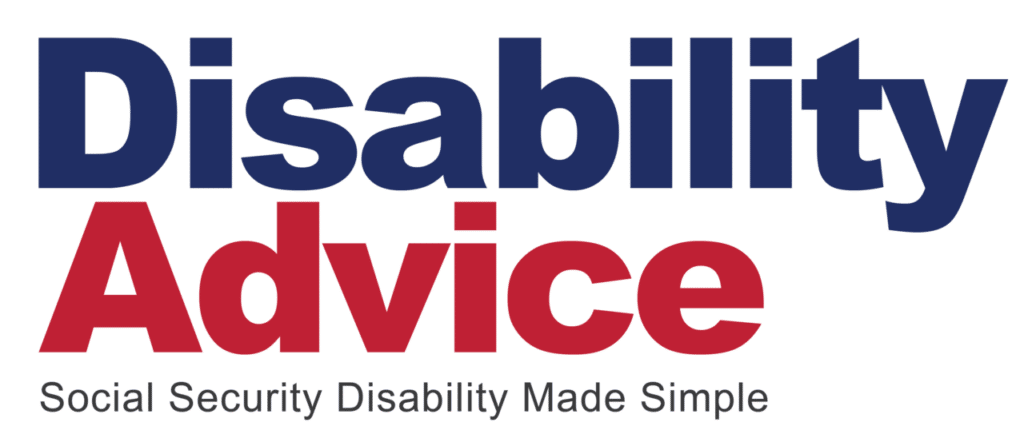SSDI Reconsideration Requests
Suppose a debilitating medical condition prevents you from sustaining work. In that case, you can file a claim for Social Security Disability Insurance, or SSDI, to get monthly benefits to cover your basic needs. The claims process can be complex, and the Social Security Administration denies the majority of initial applications. However, you can seek an SSDI reconsideration and further appeals.
The SSDI disability appeal process can be lengthy but is worth pursuing. A successful claim may allow you to collect back pay on top of a monthly SSDI benefit check. Disability Advice explains how to appeal an SSDI denial and what to expect during a reconsideration.
What Is SSDI Reconsideration?
Following an initial SSDI claim denial, you’ll receive a notice in the mail informing you of the reasons for the denial and your SSDI appeal options. All claimants have 60 days to initiate an appeal. The clock starts ticking from the date provided in your letter.
The first phase of an appeal is a Request for Reconsideration. During the SSDI reconsideration process, another claims reviewer examines your application and decides whether or not to approve it. You can submit additional evidence to support your claim, which may improve your chance of a satisfactory result.
If the examiner denies your claim again, you’ll receive a second notice of denial. At this point, you can request a hearing appeal before a judge.
Common Reasons Disability Claims Are Denied
SSDI denials fall into two categories: medical and technical. Most SSDI denials occur when an SSA claims examiner determines your medical condition doesn’t meet the agency’s stringent disability requirements. Under the guidelines, your condition must last at least one year or be terminal.
A technical denial occurs when you don’t meet other SSDI eligibility requirements. For instance, the SSA may deny the claim if your earnings exceed the SSDI threshold or you haven’t worked long enough to accrue sufficient work credits. Technical denials are more unusual and can be more challenging to appeal.
A few reasons why the SSA may decline your SSDI application include:
- Lack of sufficient medical evidence
- You earn over the substantial gainful activity limit
- Appeals Council review: One to three months to receive a decision after your hearing
- Federal district court action: Depends on the federal court's schedule, but may take one to two years for a decision
Carefully documenting your medical condition and submitting required evidence can help avoid denials and expedite claims processing.
Should You File for Reconsideration?
If your initial claim has been denied, filing a reconsideration claim is likely in your best interests. It’s the next step toward full approval. Even if the second examiner denies the reconsideration claim, you can continue the appeals process by seeking a hearing with an Administrative Law Judge.
Another benefit of filing for reconsideration is back pay eligibility. SSA may award up to 12 months of back pay SSDI benefits based on your initial application date. If you decide not to file a reconsideration appeal, you may waive any potential right to that back pay.
Consider the reasons for the denial before initiating a reconsideration appeal. An appeal won’t change the outcome if the denial is due to an undeniable eligibility factor, such as insufficient Social Security credits to receive SSDI. However, if you think the examiner made an error, move forward with an appeal.
How to File for Reconsideration
There are several steps to file for reconsideration for SSDI benefits.
1. Complete Form SSA-561
To initiate an appeal, start by completing Form SSA-561. It requests your contact information and claim number. Use the form to specify the issue you’re appealing and why you disagree with the findings. If there is more than one issue to appeal, use a separate form for each.
2. Gather Supporting Documentation
It’s critical to provide any additional evidence that refutes the SSA examiner’s initial denial. Otherwise, the new examiner will rely on your initial application and its documentation to reach a decision. If you can’t demonstrate a worsening condition or a mistake made in the initial review, they will likely deny the reconsideration appeal.
Medical records and doctor’s statements concerning your disability and its effect on your ability to work are examples of evidence to include. You may also ask family members or friends to provide written statements about your health.
3. Submit the Appeal Online or Via Mail
You can file your appeal through the SSA’s online portal or by mailing Form SSA-561 and supporting documents to your local SSA office. An examiner will review your request and contact you if further information is needed.
4. Check Claim Status
An SSDI reconsideration appeal takes time. You can monitor its progress through the SSA website by logging into your SSA account. When you log in, you’ll see where the appeal is and when to expect a decision.
What Is the Timeline for Reconsideration?
According to the SSA’s most recent data, the average reconsideration appeal takes seven months to conclude. It considers only medical denials in its Social Security reconsideration timeline data, not technical denials.
While you can’t control the SSA’s internal review time, you can make their job easier by including sufficient evidence to support your claim. The onus is on you to demonstrate the severity of your disability and inability to maintain gainful employment. The more irrefutable proof an SSA examiner has, the less likely they are to request more documents or ask you to undergo a consultative exam.
Hiring an SSDI disability advocate can expedite your case. An advocate understands the process SSA examiners use during their review. They’ll help you assemble an appeal package that meets SSA requirements for SSDI approval.
What Are My Chances of Winning a Reconsideration Appeal?
The SSA’s Annual Statistical Report on the Social Security Disability Insurance Program for 2023 noted that the average approval rate for SSDI claims was 30 percent. Of that 30 percent, two-thirds received approval at the initial claim level. Reconsideration appeals comprised two percent of SSDI awards, and seven percent saw approval at the hearing level.
While the SSDI reconsideration success rate is low, don’t let that deter you from filing an appeal. If it results in a denial, you can request a hearing, which has a higher success rate.
What if My Reconsideration Is Denied?
If the SSA denies your reconsideration appeal, you can request a hearing with an Administrative Law Judge. The SSA must receive your appeal request within 60 days of the reconsideration denial. The current average processing time for hearing appeals is 284 days or nine months.
You can initiate a hearing request through the SSA’s online portal, via fax, or by mail. If you mail or fax the request, send it to the SSA office closest to your home.
During a hearing, the judge reviews your claim and evidence. You may bring witnesses to attest to your disability and its impact on your livelihood. The judge will explain the issues with your claim and ask questions about your medical condition.
While you can represent yourself at the hearing, many people seek legal assistance. A disability advocate experienced in SSDI claims can review your case and help prepare you for the hearing. Their assistance may improve the odds of a successful outcome.
How Disability Advice Can Help
Disability Advice is committed to helping disabled individuals obtain the SSDI benefits they’re eligible for. When you reach out to Disability Advice, we’ll connect you with a qualified disability advocate who can assist you with an initial claim, reconsideration, or hearing appeal.
Contact us today to explore your SSDI legal options.
- Free case evaluation
- Assist with denied claims
- Ensure you have all documents
- Make the process easy for you
- What Is SSDI Reconsideration?
- Common Reasons Disability Claims Are Denied
- Should You File for Reconsideration?
- How to File for Reconsideration
- What Is the Timeline for Reconsideration?
- What Are My Chances of Winning a Reconsideration Appeal?
- What if My Reconsideration Is Denied?
- How Disability Advice Can Help

“Professionalism at its best. From intake to getting my claim started, they are the ones you need. 100% recommend to everyone.”
Pablo P.

“Having never gone through this process before, it was very easy and straightforward. VERY professional and polite.”
Alan A.

“I had a great experience with my representative. She was very friendly and she made the process very easy. I’m glad I had the pleasure to work with her in filing my claim. She provided great customer service.”
Dana C.

“I was very nervous about reaching out for help with disability benefits. This experience was so much easier than what I thought it would be. They were understanding and supportive, and answered all of my questions. I would highly recommend them.”
Alice P.

“One of the best customer service experiences I have ever had. Patient and kind and couldn’t of made my experience better. Thank you for all the help.”
Jama M.

“I was very pleased and impressed by the advocate. I feel that my chances of receiving my disability benefits are more likely to come in a timely manner.”
Danny C.
Fill in the form below and let us know how we can help you!
"*" indicates required fields

“Professionalism at its best. From intake to getting my claim started, they are the ones you need. 100% recommend to everyone.”
Pablo P.

“Having never gone through this process before, it was very easy and straightforward. VERY professional and polite.”
Alan A.

“I had a great experience with my representative. She was very friendly and she made the process very easy. I’m glad I had the pleasure to work with her in filing my claim. She provided great customer service.”
Dana C.

“I was very nervous about reaching out for help with disability benefits. This experience was so much easier than what I thought it would be. They were understanding and supportive, and answered all of my questions. I would highly recommend them.”
Alice P.

“One of the best customer service experiences I have ever had. Patient and kind and couldn’t of made my experience better. Thank you for all the help.”
Jama M.

“The person I spoke with was very knowledgeable and very thorough with answering all of my questions and making sure all my information was correct. He was very patient, kind, and was very helpful. I wasn’t sure if I would qualify, and he checked and took all of my information. The process was made very easy, thank you so much for your help.”
Patrice I.


